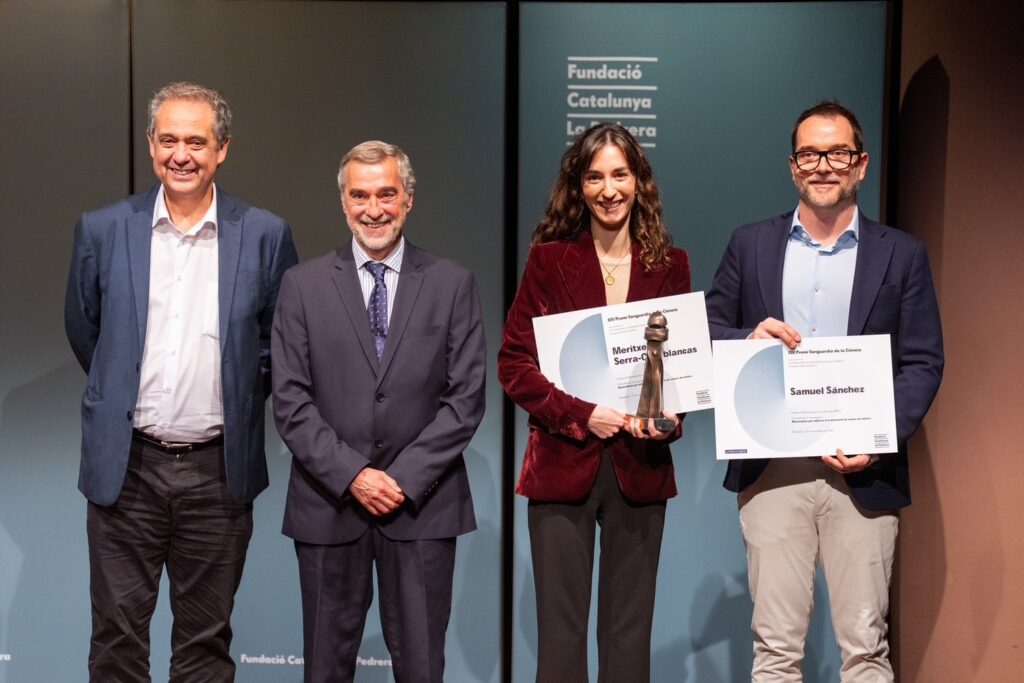A study led by IBEC has won the 3rd Vanguardia de la Ciencia 2025 Prize. The research, led by Samuel Sánchez Ordoñez and with Meritxell Serra-Casablanca as lead author, proposes an innovative bladder cancer therapy based on nanorobots loaded with radiopharmaceuticals. These nanorobots are capable of moving around the bladder using urine as a source of energy.

A study whose first author is Meritxell Serra-Casablanca, a former IBEC researcher, and led by Samuel Sánchez Ordoñez, an ICREA research professor at IBEC, has won the 3rd Vanguardia de la Ciencia 2025 Award. This award, promoted by La Vanguardia and the Catalunya La Pedrera Foundation, highlights the work of women scientists and recognises excellence in research in Spain.
The study, which was published in Nature Nanotechnology, proposes an innovative bladder cancer therapy based on nanorobots loaded with radiopharmaceuticals. These nanorobots are capable of moving around the bladder using urea in urine as an energy source. This technology enables the entire surface of the organ to be accessed and tumour cells to be penetrated, reducing tumour volume in mice by 90% with a single dose, while producing fewer side effects than conventional treatments.
This award-winning research forms part of IBEC’s Smart Nano-biodevices group‘s efforts, led by Sánchez, to develop precision therapies using biocompatible nanomachines. The results pave the way for future clinical trials in humans.
The awards ceremony took place on Wednesday, 12 November in the La Pedrera Auditorium. The event was part of Science Week, organised by the Catalan Foundation for Research and Innovation.
IBEC’s presence in award-winning research
This is the second time that IBEC has been a finalist for the Vanguardia de la Ciencia Award. In the 2015 edition, research led by Xavier Trepat — ICREA research professor and leader of IBEC’s Integrative Cell and Tissue Dynamics group — won third prize for identifying a new physical mechanism that explains how human tissues break down and repair themselves.
First prize in this edition went to a study led by IRB Barcelona, which identified a molecular defect in the brain linked to autism spectrum disorder (ASD). This study, which was published in Nature, was conducted in collaboration with IBEC’s Molecular Bionics group, led by ICREA research professor Giuseppe Battaglia.





